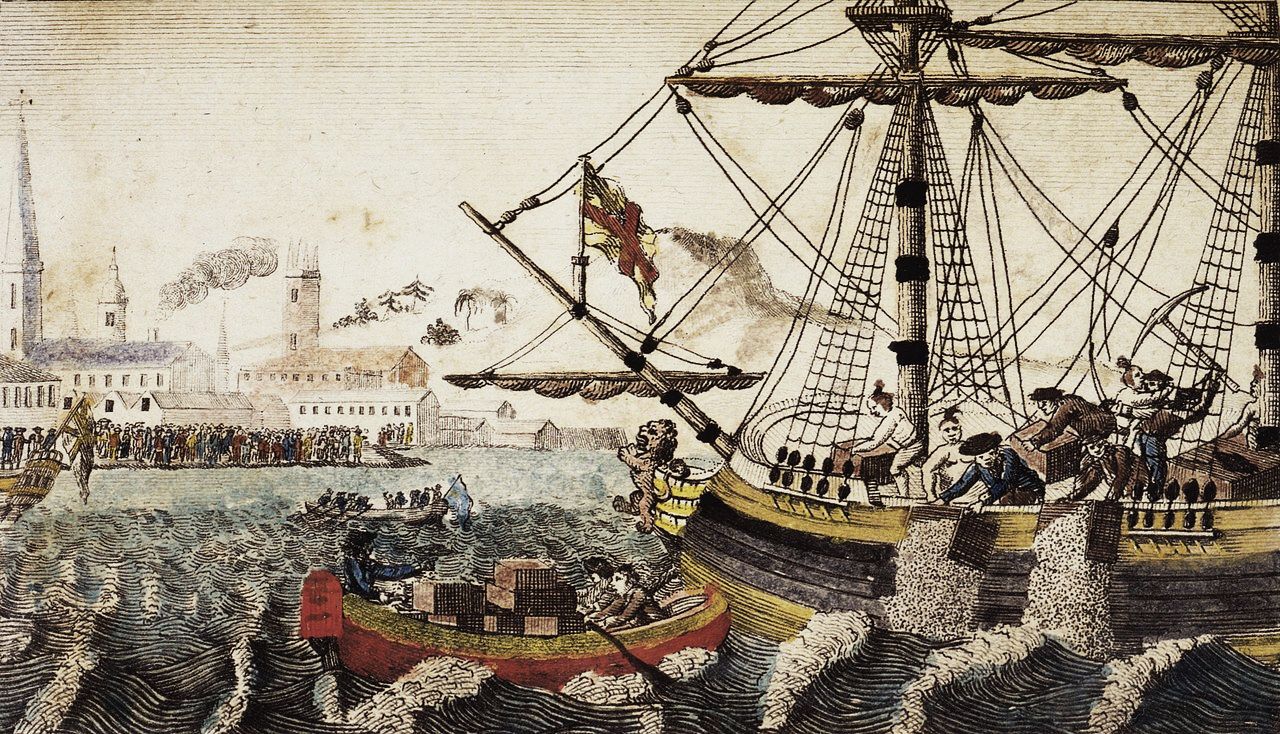Authors:
Historic Era: Era 3: Revolution and the New Nation (1754-1820s)
Historic Theme:
Subject:
Spring 2024 | Volume 69, Issue 2


Authors:
Historic Era: Era 3: Revolution and the New Nation (1754-1820s)
Historic Theme:
Subject:
Spring 2024 | Volume 69, Issue 2

Editor's Note: Benjamin L. Carp is a professor of history at Brooklyn College and the author of a definitive book about the Tea Party, Defiance of the Patriots: The Boston Tea Party and the Making of America and Rebels Rising: Cities and the American Revolution.
In 1820, a 61-year-old Ohio blacksmith with no more than $70 worth of property to his name made a startling admission in court: “I was on board the East India Company’s Ships in the Harbour of Boston and assisted in throwing the tea overboard on the 18th (actually, the 16th) December in the year AD 1773, being then fifteen years of age.”
Joshua Wyeth had just confessed to participating in the Boston Tea Party, which no more than four or five people had previously acknowledged. The “destructors” initially feared arrest for treason, and even after the war, they worried about being sued for damage to property. Wyeth finally felt safe to tell his story almost a half century later. He went on to describe his participation in the battles of Bunker Hill, Brooklyn, Harlem Heights, and White Plains. He was attempting to gain a pension from the United States government, which had never adequately rewarded many of its Revolutionary soldiers for their service.
When Wyeth told his story in detail, he talked of the indignation that he and his associates felt about British policies in Boston. Legal tea bore a tax or duty imposed by Parliament in the Townshend Acts in 1767. To protest these acts, many American merchants had agreed with one another not to import British goods, so as to put pressure on British merchants. The challenge was that the agreements had to be universal in order to be effective.
By 1770, New York City and Philadelphia had reduced their legal tea imports to nearly zero. Colonists still drank tea, but they switched to smuggled tea from continental Europe. However, in Boston, while smugglers were doing some of the importing, plenty of legal tea was still entering the New England market. When the non-importation agreements among colonial merchants collapsed in the summer of 1770, many of the radical patriots in the middle colonies blamed Boston